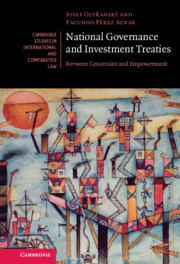Refine search
Actions for selected content:
10 results
8 - “Money for the Poor”
-
-
- Book:
- Governing Climate Change Loss and Damage
- Published online:
- 10 June 2025
- Print publication:
- 26 June 2025, pp 160-176
-
- Chapter
-
- You have access
- Open access
- HTML
- Export citation
5 - After the Storm
-
-
- Book:
- Governing Climate Change Loss and Damage
- Published online:
- 10 June 2025
- Print publication:
- 26 June 2025, pp 91-112
-
- Chapter
-
- You have access
- Open access
- HTML
- Export citation
7 - Loss and Damage Policy in Bangladesh
-
-
- Book:
- Governing Climate Change Loss and Damage
- Published online:
- 10 June 2025
- Print publication:
- 26 June 2025, pp 130-159
-
- Chapter
-
- You have access
- Open access
- HTML
- Export citation
9 - (Non)Governance Evolving
-
-
- Book:
- Governing Climate Change Loss and Damage
- Published online:
- 10 June 2025
- Print publication:
- 26 June 2025, pp 177-198
-
- Chapter
-
- You have access
- Open access
- HTML
- Export citation
3 - The Loss and Damage Policy Landscape
-
-
- Book:
- Governing Climate Change Loss and Damage
- Published online:
- 10 June 2025
- Print publication:
- 26 June 2025, pp 50-69
-
- Chapter
-
- You have access
- Open access
- HTML
- Export citation
10 - Conclusion
-
-
- Book:
- Governing Climate Change Loss and Damage
- Published online:
- 10 June 2025
- Print publication:
- 26 June 2025, pp 199-222
-
- Chapter
-
- You have access
- Open access
- HTML
- Export citation
6 - Loss and Damage in a Landlocked State
-
-
- Book:
- Governing Climate Change Loss and Damage
- Published online:
- 10 June 2025
- Print publication:
- 26 June 2025, pp 113-129
-
- Chapter
-
- You have access
- Open access
- HTML
- Export citation

National Governance and Investment Treaties
- Between Constraint and Empowerment
-
- Published online:
- 29 June 2023
- Print publication:
- 13 April 2023
-
- Book
- Export citation
1 - National Governance and Investment Treaties
-
- Book:
- National Governance and Investment Treaties
- Published online:
- 29 June 2023
- Print publication:
- 13 April 2023, pp 1-41
-
- Chapter
- Export citation
Conclusion
- from Part II - Formal and Informal Institutional Effects of Investment Treaties on National Governance
-
- Book:
- National Governance and Investment Treaties
- Published online:
- 29 June 2023
- Print publication:
- 13 April 2023, pp 279-286
-
- Chapter
- Export citation
